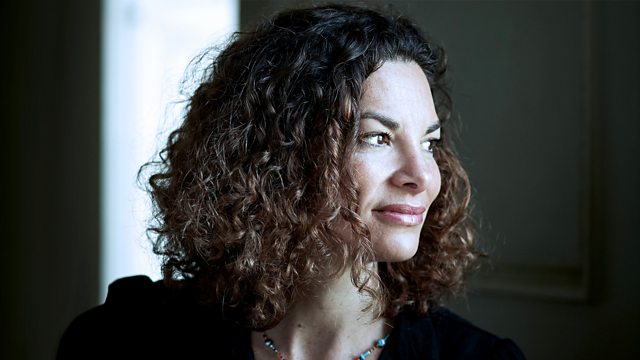Multiverses, melting glaciers and what you can tell from the noise of someone peeing
The multiverse has gone from philosophical speculation to one of the most credible explanations of our universe's origins. Cosmologist Laura Mersini-Houghton tells all.
The Multiverse
Laura Mersini-Houghton is an internationally renowned cosmologist and theoretical physicist and one of the world's leading experts on the multiverse and the origins of the universe. She talks to Gaia Vince about finding evidence that supports her multiverse theory as more than just a hypothetical collection of diverse universes, including the one that houses our planet. She also shares her story of growing up with the horrors of a brutal Albanian communist regime.
Glacier Collapse
In Italy this month eleven people were killed when Marmolada glacier collapsed. A few days later, hikers recorded another huge glacier collapse in Kyrgyzstan. Is there any way of monitoring glaciers to give us a warning of these events? Glaciologist Liam Taylor, a researcher at Leeds University explains to Gaia our options for monitoring vulnerable glaciers, and why a black spot in those observations is about to open up.
Pees and queues.
Lower urinary tract symptoms are common and affect an estimated 60% of men and 57% of women. These can be detected using a gadget called a uroflowmetre, but patients often face delays getting to clinics to use one. Dr Lee Han Jie and Professor Ng Lay Guat, with colleagues at Singapore General Hospital and the Singapore University of Technology and Design have developed an artificial intelligence algorithm that is trained to listen to patients pass urine. From just the noise of peeing, the AI is able to identify abnormal flows and could be a useful and cost-effective means of monitoring and managing urology patients at home.
Heatwave Records
Richard Betts from the Met Office explains why the official highest temperature is only 40.3C, whereas many of us have clocked temperature in the mid forties in our cars and on patios.
Last on
Broadcasts
- Thu 21 Jul 2022 16:30Βι¶ΉΤΌΕΔ Radio 4
- Thu 21 Jul 2022 21:00Βι¶ΉΤΌΕΔ Radio 4
Explore further with The Open University
Βι¶ΉΤΌΕΔ Inside Science is produced in partnership with The Open University.
Podcast
-
![]()
Βι¶ΉΤΌΕΔ Inside Science
A weekly programme looking at the science that's changing our world.


